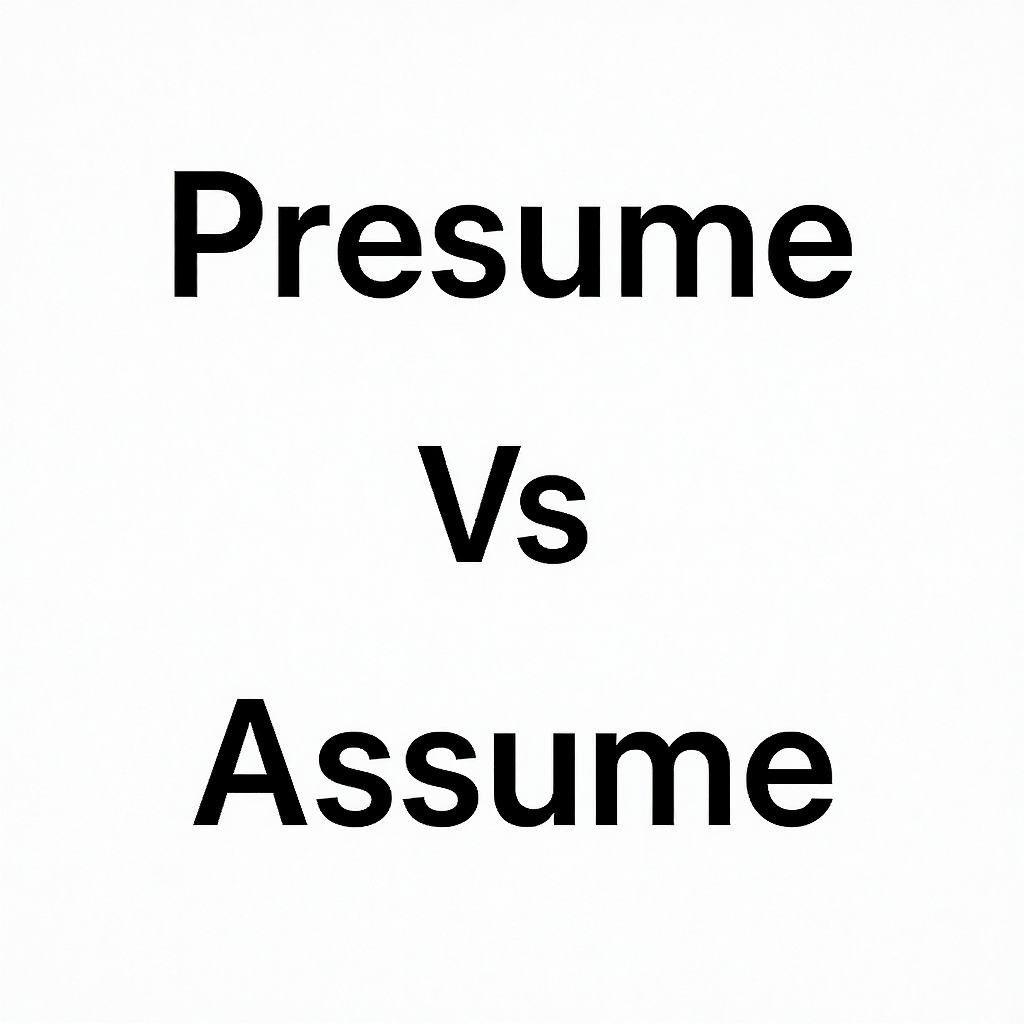"Presume" Vs "Assume" - What’s the Difference?

English has plenty of word pairs that look and sound similar but carry slightly different meanings. Two of the trickiest are “presume” and “assume.”
They both deal with making guesses or beliefs without full proof, but the tone and level of confidence are not the same. Today, Midoo AI will explain the difference in simple words, with examples and tips so you’ll know exactly when to use each one.
What Does “Presume” Mean?
Presume suggests making a guess or belief based on probability, logic, or strong evidence. It often carries the idea that your guess is reasonable and likely to be correct.
It can also imply taking something for granted or acting with confidence (sometimes too much confidence).
Examples of “Presume”:
- I presume you’re tired after such a long trip.
- The law says we must presume someone is innocent until proven guilty.
- I presume the store will be open on Sunday.
- Since he didn’t reply, I presumed he wasn’t interested.
- Don’t presume to tell me what to do!
👉 Key idea: presume = assume with confidence or evidence.
What Does “Assume” Mean?
Assume means to believe something without proof, often just for the sake of discussion or convenience. It doesn’t require strong evidence — sometimes it’s just a guess.
It also has another meaning: to take on responsibility, power, or a role.
Examples of “Assume” (belief without proof):
- I assume she’s already left.
- Don’t just assume everything will work out.
- He assumed I knew the answer, but I didn’t.
- I assumed you were joking.
- People often assume too much.
Examples of “Assume” (take responsibility/role):
- She will assume the role of manager next month.
- The soldiers assumed their positions.
- He assumed full responsibility for the mistake.
👉 Key idea: assume = to suppose without proof, or to take on a role.
Quick Comparison
- Presume → Suggests a belief that feels reasonable, logical, or very likely true.
- Assume → Suggests a belief made without proof, sometimes careless.
Comparison Table
| Word | Meaning | Example |
|---|---|---|
| Presume | To believe something is true because it’s likely or logical | I presume she’ll be late because of traffic. |
| Assume | To suppose without proof, or to take on a role | Don’t assume I know the answer. |
| Assume (role) | To accept responsibility, duty, or power | She will assume the position of team leader. |
Memory Tips
- Presume = proof. If you have some reason or logic, use presume.
- Assume = a guess. If you’re just taking something for granted, use assume.
- Think: Presume sounds more formal and careful, assume sounds casual and risky.
Common Mistakes
❌ I presume she’s already left, but I have no idea. ✔️ I assume she’s already left, but I have no idea.
❌ We must assume people are innocent until proven guilty. ✔️ We must presume people are innocent until proven guilty.
FAQs
Can I use “presume” and “assume” interchangeably?
Sometimes, yes, but not always. Presume suggests more confidence or evidence, while assume can be weaker or careless.
Which one is more formal?
Presume is generally more formal, often used in legal or professional contexts.
Does “assume” always mean guessing?
No. It can also mean taking on a role or responsibility (e.g., assume a position, assume power).
Is “presume” common in daily speech?
It’s less common than “assume.” People often say “assume” in casual conversation, while “presume” is more common in formal writing.
How do I decide quickly?
Ask yourself: Do I have a logical reason or strong likelihood? → presume. Am I just guessing? → assume.
Final Thoughts
The difference is subtle but important:
- Presume = assume with logic or confidence.
- Assume = suppose without proof, or take on a role.
Midoo AI recommends this practice: Write one sentence where you presume something with evidence, and another where you simply assume without knowing. That way, the difference will feel natural.